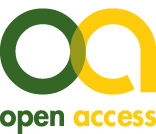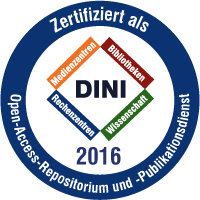Interdisziplinäre Arbeitsgruppe Zukunft der Medizin: "Gesundheit für alle"
Refine
Document Type
- Part of a Book (49)
- Working Paper (12)
- Book (7)
Language
- German (68)
Keywords
- Gesundheitswesen (10)
- Krankheitsbegriff (8)
- Medizin (7)
- Antike (6)
- Hippocrates (5)
- Krankenkasse (5)
- Lebensstil (5)
- Patient (5)
- Selbsthilfe (5)
- Angst (4)
Has Fulltext
- yes (68)
Die Artikel des Denkanstoßes „Gesundheit von morgen“ diskutieren, wie angesichts knapper Ressourcen und notwendiger Reformen das Nachhaltigkeitsziel 3 der Vereinten Nationen „Gesundheit und Wohlergehen“ erreicht werden kann. Die Artikel bilden eine große Bandbreite aktueller Themen in den Bereichen Prävention und Gesundheitsförderung ab und heben besonders die Rolle der Gesundheitskompetenz hervor. Mit Beiträgen u. a. von Annette Grüters-Kieslich, Doris Schaeffer und Klaus Hurrelmann, Christiane Woopen. Mit einer Einleitung und Empfehlungen von Detlev Ganten, Kerstin Berr, Susanne Melin und Britta Rutert.
Der Denkanstoß 12 „Gesundheitswissenschaften und Medizin in Brandenburg“ ist eine Fortschreibung von Denkanstoß 8 „Gesundheitsregion Berlin-Brandenburg“, um dem Flächenland Brandenburg mit seinen spezifischen medizinisch-gesundheitswissenschaftlichen Strukturen und Entwicklungen den nötigen Raum zu bieten, diese Entwicklungen darzustellen. Diese Fortschreibung ist als ein Aufruf zu verstehen, Berlin und Brandenburg noch mehr als bisher zusammen zu denken. Das Potential dieser beiden Regionen als eine Gesundheitsregion ist sehr groß und sollte daher gewinnbringend für beide Länder genutzt werden. Der „Denkanstoß“ ist auch das Resultat umfangreicher Diskussionen, vielfältiger Hinweise und wertvoller Anregungen von Vertreter:innen aus Wissenschaft, Klinik, Politik und Verwaltung des Landes Brandenburg aus dem Jahr 2022. Mit Beiträgen von Nathalie Dehne, Jouleen Gruhn, Christine Holmberg, Maria Radzimanowski, Felix G. Rebitschek, Isabelle Vandre und Andreas Winkelmann.
Der Denkanstoß 11 „KI in der Medizin“ beleuchtet den Einsatz von künstlicher Intelligenz (KI) und von maschinellem Lernen in der Medizin. KI hält ein großes Potential für eine bessere medizinische Praxis und Forschung bereit. Der Sektor wartet mit fortwährenden Innovationen auf, deren Zahl sich in den kommenden Jahren noch erheblich steigern wird. Gleichzeitig gilt es, zahlreiche technische, rechtliche und ethische Herausforderungen zu klären. Insbesondere Fragen nach der Verantwortung, der Güte von Daten und Algorithmen und dem Schutz der individuellen Gesundheitsdaten sind in der Wissenschaft und der Öffentlichkeit ambivalent diskutierte Themen. Die zentrale Frage lautet dabei, wie digitale Daten für die wissenschaftliche Forschung sinnvoll und gewinnbringend genutzt werden können, ohne dabei den Datenschutz außen vor zu lassen oder ihm sogar einen so großen Raum zu geben, dass er wichtige Forschung verhindert. Diese Frage wird anhand von Beiträgen aus Theorie und Praxis diskutiert. Mit Beiträgen von Olaf Dössel, Tobias Schäffter, Fabian Schöck, Christoph Lippert, Iris Pigeot, Frauke Kreuter, Rico Barth, Daniel Strech et al.
Maschinelles Lernen und Künstliche Intelligenz in der Medizin - eine Einführung und ein Plädoyer
(2023)
Der Denkanstoß 7„Apps und Wearables für die Gesundheit“ beschäftigt sich mit den Chancen und Herausforderungen, die durch sich stetig neu entwickelnde Gesundheitsapps und Wearables entstehen. Nicht alle dieser Apps und Wearables sind von gesundheitlichem Nutzen, sondern bedienen primär Marktinteressen. Andere, wie z.B. die Corona-Warn-App, bieten ein großes Potential für gesellschaftlichen und individuellen gesundheitlichen Nutzen. Die Entwicklungen im Bereich „Apps und Wearables für die Gesundheit“ sind teilweise so rasant, dass gesellschaftliche, ethische und rechtliche Fragestellungen kaum zeitnah und ausreichend diskutiert werden können. Der Nutzen der für die Forschung wichtigen Datenmengen, die mit Apps und Wearables generiert werden, wird dabei oftmals dem Datenschutz untergeordnet. Dieser „Denkanstoß“ möchte dazu anregen, über das Dilemma aus Datenschutz versus Datennutzen nachzudenken und Lösungen zu entwickeln.
Obwohl Gesundheit für alle Menschen essentiell ist, unterliegt das Verständnis des Begriffs »Gesundheit« jeweils historisch, regional und kulturell unterschiedlichen Einflüssen. Mit verschiedenen Festlegungen von »Gesundheit und Krankheit« werden auch die Aufgaben der Medizin unterschiedlich definiert.
Dieser Band ist dem Thema »Verständnis(se) von Gesundheit« gewidmet, einem der Kernthemen der interdisziplinären Arbeitsgruppe der Berlin-Brandenburgischen Akademie der Wissenschaften »Zukunft der Medizin: Gesundheit für alle«. Es wird u.a. der Frage nachgegangen, wie die Medizin Krankheiten nicht nur immer besser therapieren kann, sondern wie sie außerdem besser imstande sein könnte, Gesundheit zu bewahren. Die Beiträge zeigen historische Kontinuitäten auf und verbinden diese mit kulturgeschichtlichen Besonderheiten aus allen Regionen der Welt, Europa, China, Indien, Afrika, Südamerika sowie mit philosophischen Aspekten, z.B. der Frage der Verantwortung für die eigene Gesundheit. So ergibt sich ein holistisch(er)er Gesundheitsbegriff, aus dem neue Perspektiven für die evidenzbasierte Medizin erwachsen.
Ein eigener Buchteil ist dem Verständnis von Gesundheit aus Sicht einzelner Patienten und den Empfehlungen an die Politik gewidmet.
- interdisziplinärer Zugang zum Thema Medizin inkl. historischer Beiträge
- holistisches Verständnis von Gesundheit, das regionale Medizintraditionen miteinbezieht
- Aufzeigen blinder Flecken medizinischer Versorgung und Empfehlungen an die Politik
Introduction – Reflections on Concepts of Health in Their Context. Contrary to what is often believed, health is not simply an objective condition that is easily determined and measured by strict medical criteria in clinical or scientific settings. It is a multifaceted phenomenon whose perception and understanding is influenced profoundly by people’s personal experience, cultural background and social environment. Correspondingly, there is great variety in concepts and definitions of health, both today and in a historical perspective. This collection of studies examines a number of such contextual factors that influence concepts, values and practices related to health, both present and past. It also makes a number of recommendations relevant to medical professionals, politicians, patients and other healthcare stakeholders as to how healthcare systems can be improved and enriched. It advocates a holistic approach to the understanding of health and disease, which involves embracing historical and philosophical concepts in medical reasoning, learning from health practices originated in other parts of the world and establishing interdisciplinary ways of thinking in biomedical research and clinical care.
Vernunft als Therapie und Krankheit: Medizinische Denkfiguren in der Geschichte der Philosophie
(2021)
Reason as Therapy and Illness: Medical Figures of Thought in the History of Philosophy. This paper tackles the question how philosophers have used medical metaphors, analogies or aspects of medical theories in their works. It discusses the idea of ancient Greek philosophy as a medicine of the soul, as well as the Christian surgery of the text-body and finally, how madness became a central problem for the philosophical conception of reason.
Health, Lifestyle and Responsibility: Historical Roots and Current Perspectives. The question to what extent health and disease are matters of individual and collective human responsibility was first raised and systematically discussed in ancient Greek medicine and philosophy in the 5th and 4th century BCE. This chapter discusses the consequences of these discussions for the definition of the aims and methods of the medical art, in particular the preservation and enhancement of health and the prevention of disease through lifestyle-related prophylactic and therapeutic measures. It also considers some of the implications of these ancient discussions for today’s theory and practice of preventative and lifestyle-related medicine.
Body Resonance: On the Neophenomenological Concept of Health. In contemporary philosophy, one can observe a trend of reorientation towards the (living) body (Leib), thereby declaring it a relevant topic of philosophical thinking. In this article, the so-called New Phenomenology will be discussed as an approach that aims to overcome the ignorance of health in Western philosophy. Following the ideas of Hermann Schmitz, the founder of New Phenomenology, the author introduces the concept of body resonance (Leibesgestimmtheit). In addition, some therapeutic tendencies within the neophenomenological scene are presented.
The Normative Practice of Health and Disease. „Health“ and „disease“ are frequently used terms with a high relevance for our everyday lives. Their spectrum of meaning is very extensive, but also ambivalent, because they are not adequately captured by a purely medical-scientific approach. The forms of knowledge associated with „disease“ and „health“ are rather diverse and allow different ways of looking at them side by side in a justified manner. Against this background, the relationship between scientific and life world approaches to these phenomena is of central importance, because this results in very different claims to an interpretative sovereignty of „health“ and „disease“. For these states not merely have an associated dimension, but an essentially practical-normative one, so that they cannot simply be reduced to a biological function or dysfunction. This becomes especially clear when the assignment of dysfunctional conditions to the concept of disease results in immediate options for action that are not simply limited to a chapter expansion of medical textbooks, but may lead to fundamental personal and social changes. For this side of „disease“ and „health“ reflects not only medical developments, but also normative attitudes in science and society. These in turn are also decisive for the communicative structure in the doctorpatient relationship.
The Art of Medicine and Philosophy: On the Genesis of a Basic Relationship in European Thought. Referring to the examples of Hippocrates and Socrates, in this essay, we establish the thesis that philosophy and medicine in Greek philosophy are to be regarded as strongly interdependent. In their view, interpretations of health and disease are intertwined with various contexts or settings such as living conditions, environment and climate, which has implications for the therapy of patients as an art of healing. The relevance and philosophical perspectives of this epoch for modern medicine and public health on a globalized planet are highlighted.

